supercomputer in your pocket
description: a phrase to highlight the computational power of modern smartphones compared to earlier computers
12 results
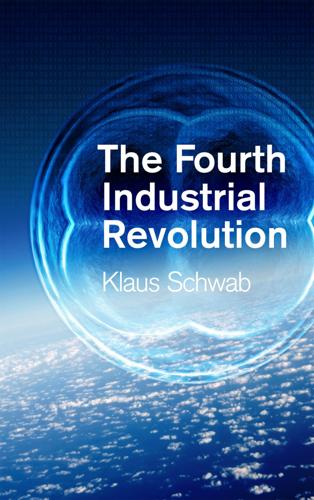
The Fourth Industrial Revolution
by
Klaus Schwab
Published 11 Jan 2016
Impact 3.1 Economy 3.1.1 Growth 3.1.2 Employment 3.1.3 The Nature of Work 3.2 Business 3.2.1 Consumer Expectations 3.2.2 Data-Enhanced Products 3.2.3 Collaborative Innovation 3.2.4 New Operating Models 3.3 National and Global 3.3.1 Governments 3.3.2 Countries, Regions and Cities 3.3.3 International Security 3.4 Society 3.4.1 Inequality and the Middle Class 3.4.2 Community 3.5 The Individual 3.5.1 Identity, Morality and Ethics 3.5.2 Human Connection 3.5.3 Managing Public and Private Information The Way Forward Acknowledgements Appendix: Deep Shift 1. Implantable Technologies 2. Our Digital Presence 3. Vision as the New Interface 4. Wearable Internet 5. Ubiquitous Computing 6. A Supercomputer in Your Pocket 7. Storage for All 8. The Internet of and for Things 9. The Connected Home 10. Smart Cities 11. Big Data for Decisions 12. Driverless Cars 13. Artificial Intelligence and Decision-Making 14. AI and White-Collar Jobs 15. Robotics and Services 16. Bitcoin and the Blockchain 17.
…
Facebook’s Internet.org, a project with mobile network operators, has enabled access to free basic internet services for over a billion people in 17 countries in the last year.83 And, many initiatives are under way to affordably connect even the most remote regions: Facebook’s Internet.org is developing internet drones, Google’s Project Loon is using balloons and SpaceX is investing in new low-cost satellite networks. Shift 6: A Supercomputer in Your Pocket The tipping point: 90% of the population using smart phones By 2025: 81% of respondents expected this tipping point will have occurred Already in 2012, the Google Inside Search team published that “it takes about the same amount of computing to answer one Google Search query as all the computing done – in flight and on the ground – for the entire Apollo programme!”
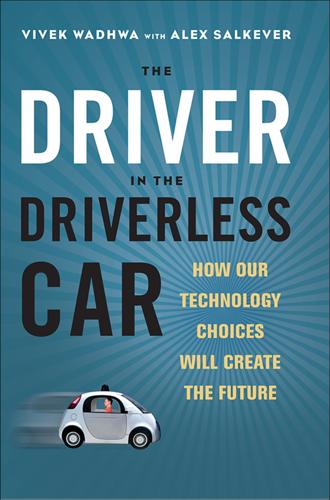
The Driver in the Driverless Car: How Our Technology Choices Will Create the Future
by
Vivek Wadhwa
and
Alex Salkever
Published 2 Apr 2017
Governments, corporations, and entrepreneurs everywhere understand the benefits of solving these issues and are racing ahead with novel approaches and breakthrough methods. Each advance we make will come with setbacks, but we will work through those as we go. The question is what will we lose in the process? Citizens Caught in the Cyber Crossfire The ability to access nearly all of the world’s information from an affordable personal supercomputer in your pocket has unquestionably brought benefits. We can reach loved ones at a moment’s notice, access a rapidly growing list of services instantly, and learn almost anything we want from anywhere. It’s not just the rich who are benefiting; it is arguable that the greatest gains are being made by the global poor, who can now communicate, collaborate, and bypass some of the institutional barriers that have held them back.

The World According to Physics
by
Jim Al-Khalili
Published 10 Mar 2020
When Maxwell wrote down his electric and magnetic field equations and derived from them the wave equation for light, no one knew, not even Maxwell himself, how this knowledge would be used by Heinrich Hertz, Oliver Lodge, Guglielmo Marconi, and others to develop radio. Nor did Einstein anticipate, when developing his theories of relativity, that they would one day be used to give us accurate satellite navigation, which you access using the technological wonders crammed into that supercomputer in your pocket that would have been impossible without the abstract speculations of the early quantum pioneers. So, the inflationary cosmologists and the string theorists and the loop quantum gravity researchers continue on their quests, and rightly so. Their ideas may turn out to be wrong—or they may change the course of human history.
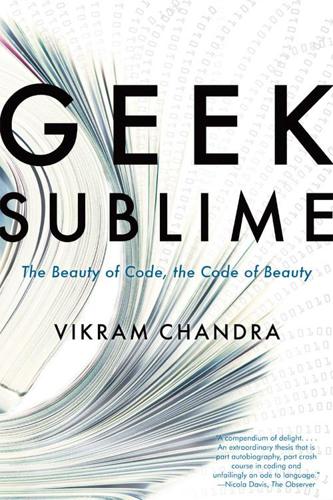
Geek Sublime: The Beauty of Code, the Code of Beauty
by
Vikram Chandra
Published 7 Nov 2013
Not the isolating effect of islands or valleys resulting in genetic drift and xenophobia, but a growing addiction to foreign gene products, for example, humans “mating” with wormwood for antimalarial drug precursor artemisinin, and with Clostridium for Botox.17 If you think that all this sounds comfortably science-fiction-like and distant, take a moment to consider how you might have reacted in 1985 if someone had told you that within your own lifetime, you would carry a Cray 2 supercomputer in your pocket, as would farmers in rural India. Synbio is here, and bio-hackers and programmers will change you and your environment much sooner than you think. The effects of code will spill out from the compiler; its vyanjana or suggestiveness will echo through the world and the human body. Undoubtedly, artists will—and already do—arrange this suggestion to manifest dhvani and rasa.
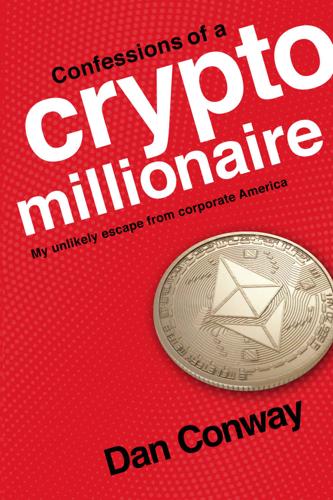
Confessions of a Crypto Millionaire: My Unlikely Escape From Corporate America
by
Dan Conway
Published 8 Sep 2019
It encapsulated my revenge-first perspective that dovetailed with my belief in crypto. I used the upcoming Ethereum developers conference as the hook: Personal Computing Devices and the Coming War All the real action in computing has been out of our grasp for quite some time. Yes, that supercomputer in your pocket is better, faster, stronger than last year. But the thrust of its development has been to better acclimate it to the great nipple of computing power in the sky: The Cloud. The Cloud, i.e. server farms, are where the real action is. These vast racks of processors in air conditioned rooms, under armed guard, run our apps, set the rules, process our transactions, and upgrade the operating systems of our slave clients.
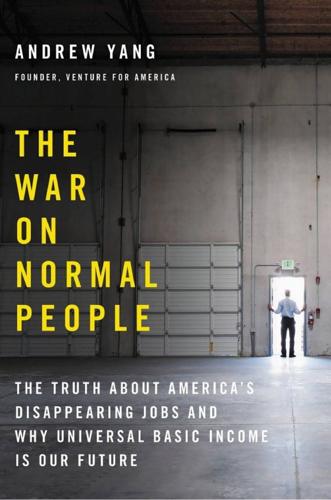
The War on Normal People: The Truth About America's Disappearing Jobs and Why Universal Basic Income Is Our Future
by
Andrew Yang
Published 2 Apr 2018
We have a 1960s-era government that has few solutions to the problems of 2018. This must change if our way of life is to continue. We need a revitalized, dynamic government to rise to the challenge posed by the largest economic transformation in the history of mankind. The above may sound like science fiction to you. But you’re reading this with a supercomputer in your pocket (or reading it on the supercomputer itself) and Donald Trump was elected president. Doctors can fix your eyes with lasers, but your local mall just closed. We are living in unprecedented times. The future without jobs will come to resemble either the cultivated benevolence of Star Trek or the desperate scramble for resources of Mad Max.
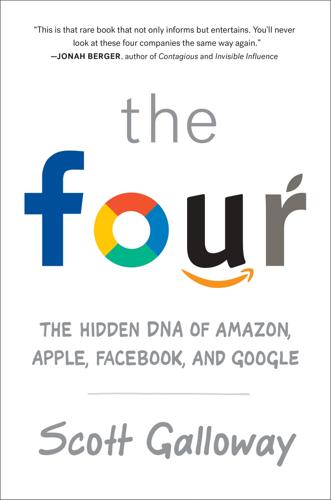
The Four: How Amazon, Apple, Facebook, and Google Divided and Conquered the World
by
Scott Galloway
Published 2 Oct 2017
Acknowledgments Illustration Credits Notes Index Chapter 1 The Four OVER THE LAST TWENTY YEARS, four technology giants have inspired more joy, connections, prosperity, and discovery than any entity in history. Along the way, Apple, Amazon, Facebook, and Google have created hundreds of thousands of high-paying jobs. The Four are responsible for an array of products and services that are entwined into the daily lives of billions of people. They’ve put a supercomputer in your pocket, are bringing the internet into developing countries, and are mapping the Earth’s land mass and oceans. The Four have generated unprecedented wealth ($2.3 trillion) that, via stock ownership, has helped millions of families across the planet build economic security. In sum, they make the world a better place.
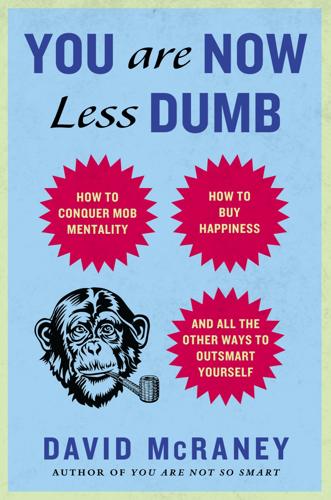
You Are Now Less Dumb: How to Conquer Mob Mentality, How to Buy Happiness, and All the Other Ways to Outsmart Yourself
by
David McRaney
Published 29 Jul 2013
You might gaze upon distant galaxies and marvel at how in less than sixty years your people went from airplanes to spaceships, but in between that time it also fought two world wars and attended a depressing number of child beauty pageants. A lot of people have believed a lot of things that people don’t anymore. Belief is a pretty fragile thing, which is probably why most people guard it so carefully. Still, compared to your loinclothed cousins from antiquity, you live in an amazing time. You probably carry a supercomputer in your pocket, and unlike most of your ancestors, you’ll probably never worry about food or shelter. You don’t go to sleep at night wondering if you’ll wake up in a lion’s mouth. Looking at things in this way, compared to your ancestors, you might count yourself among the modern geniuses of contemporary society.
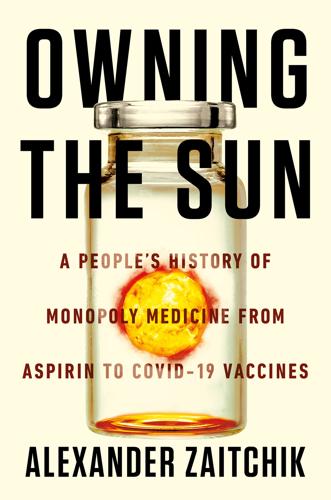
Owning the Sun
by
Alexander Zaitchik
Published 7 Jan 2022
A pledge singling out “patents” on mRNA technology only sounds meaningful if you don’t understand that patents are a form of intellectual property, not a synonym. In the context of mRNA vaccines, using “patents” as a stand-in for knowledge monopolies is a throwback reference that obscures far more than it explains, like calling the supercomputer in your pocket a telephone. For centuries, the “patent” symbolized a limited-term social contract by containing the information society received in return for the privilege of a limited-term monopoly. By containing the details of the invention, it served as a note of collateral. When the monopoly expired, the state would diffuse the knowledge by lifting restrictions on its use.
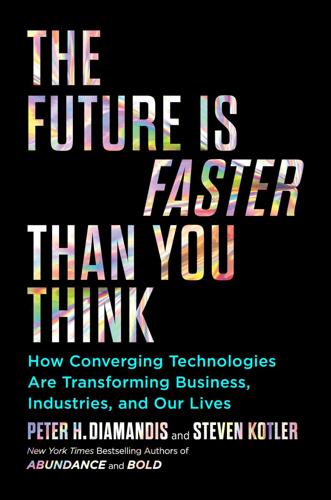
The Future Is Faster Than You Think: How Converging Technologies Are Transforming Business, Industries, and Our Lives
by
Peter H. Diamandis
and
Steven Kotler
Published 28 Jan 2020
As a result, if you’re working in genomics, then your government research grants now go much further than ever before, accelerating insights and catalyzing breakthroughs. And what is true for gene sequencing is true in dozens of fields. Tools once accessible to only the wealthiest companies and the largest government labs are now available at near-zero prices to just about anyone. The obvious example is the supercomputer in your pocket. That would have been a multimillion-dollar machine a few decades back. In Abundance, we calculated the amount of technology—music players, video cameras, calculators, etc.—that came free of charge inside what was then a fairly expensive smartphone ($800 or so) at over a million 2012 dollars.
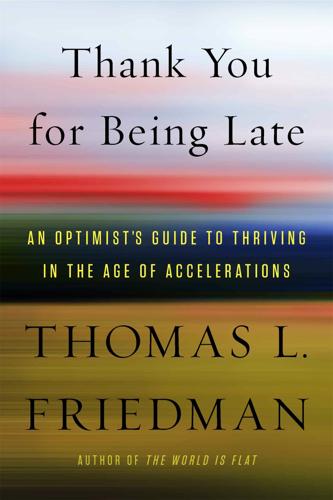
Thank You for Being Late: An Optimist's Guide to Thriving in the Age of Accelerations
by
Thomas L. Friedman
Published 22 Nov 2016
The personal drone is basically the peace dividend of the smartphone wars, which is to say that the components in a smartphone—the sensors, the GPS, the camera, the ARM core processors, the wireless, the memory, the battery—all that stuff, which is being driven by the incredible economies of scale and innovation machines at Apple, Google, and others, is available for a few dollars. They were essentially “unobtainium” ten years ago. This is stuff that used to be military industrial technology; you can buy it at RadioShack now. I’ve never seen technology move faster than it’s moving right now, and that’s because of the supercomputer in your pocket. And as far as Irwin Jacobs is concerned, you have not seen anything yet. Before I left he told me: “We’re still in the era when cars had fins.” The Cloud If today’s exponentially growing technologies are to keep accelerating at a multiplying rate, it will owe much to the fact that they are all melding together into something that has come to be called the cloud, which amplifies all of them individually and collectively.
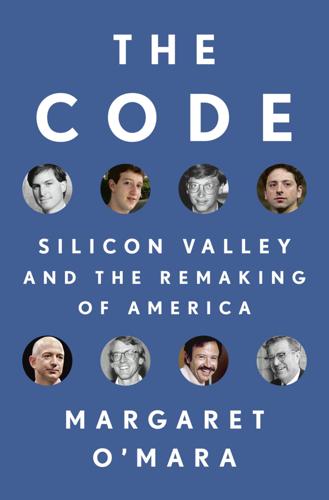
The Code: Silicon Valley and the Remaking of America
by
Margaret O'Mara
Published 8 Jul 2019
By the mid-2000s, the Apple team had shifted its focus to the biggest hardware challenge—and potentially biggest moneymaker—of them all. They were going to make a mobile phone. Cell phones were already a massive market, but Jobs was less interested in imitating what was already out there than he was in creating something quite different: an intuitive, elegantly designed handheld computer. THE SUPERCOMPUTER IN YOUR POCKET Silicon Valley technologists had been trying to build such a device since before the Apple II. It had been an arduous quest. In 1972, Xerox PARC’s Alan Kay had mocked up a prototype of a mobile companion for young children that he called the “Dynabook.” In 1991, an all-star roster of Silicon Valley insiders came together to launch Go Corp., developing software for a notebook-sized computer that used a stylus instead of a keyboard.